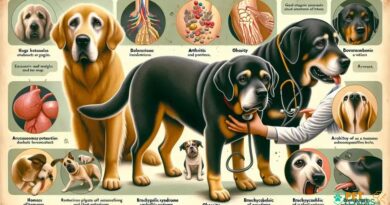What is Urgent Care for Dogs
What is Urgent Care for Dogs?
Urgent care for dogs refers to immediate medical attention provided to canines experiencing non-life-threatening emergencies. This type of care is crucial for conditions that require prompt treatment but do not warrant a visit to a full-service emergency veterinary hospital. Understanding what constitutes urgent care can help pet owners make informed decisions during stressful situations.
Common Situations Requiring Urgent Care
There are several scenarios where urgent care for dogs becomes necessary. These include minor injuries, allergic reactions, vomiting, diarrhea, and sudden changes in behavior. For instance, if a dog has a cut that is bleeding but not profusely, or if it has ingested something potentially harmful, urgent care can provide the necessary treatment to prevent further complications.
Differences Between Urgent Care and Emergency Care
While both urgent care and emergency care serve critical roles in veterinary medicine, they differ significantly. Emergency care is designed for life-threatening situations, such as severe trauma, respiratory distress, or poisoning. In contrast, urgent care focuses on less severe conditions that still require timely intervention. Knowing the difference can save valuable time and resources when your dog is in need.
What to Expect During an Urgent Care Visit
When you take your dog to an urgent care facility, you can expect a thorough examination by a veterinarian. The vet will assess your dog’s condition, possibly perform diagnostic tests, and recommend a treatment plan. This may include medications, wound care, or follow-up appointments. The goal is to stabilize your pet and address the immediate health issue effectively.
Benefits of Urgent Care for Dogs
Urgent care for dogs offers several advantages. It provides quick access to veterinary services without the long wait times often associated with emergency rooms. Additionally, it can be more cost-effective than emergency care, making it a viable option for pet owners seeking immediate assistance. This type of care ensures that your dog receives timely treatment, which can lead to better health outcomes.
When to Seek Urgent Care
Pet owners should be vigilant and recognize when their dog needs urgent care. Signs that your dog may require immediate attention include excessive bleeding, difficulty breathing, seizures, or signs of severe pain. If you are ever in doubt, it is always better to err on the side of caution and consult with a veterinarian to determine the best course of action.
Finding Urgent Care Facilities
Locating an urgent care facility for dogs is essential for pet owners. Many veterinary clinics offer urgent care services, but it’s important to verify their hours of operation and the types of services they provide. Additionally, some areas have dedicated urgent care clinics for pets, which can be found through online searches or local veterinary associations.
Cost Considerations for Urgent Care
The cost of urgent care for dogs can vary widely depending on the nature of the condition and the specific services required. Generally, urgent care is less expensive than emergency care, but it is still important for pet owners to be prepared for potential costs. Many veterinary clinics offer payment plans or financing options to help manage expenses.
Preventive Measures to Reduce Urgent Care Needs
While urgent care is essential, preventive measures can help reduce the likelihood of needing such services. Regular veterinary check-ups, vaccinations, and proper training can prevent many health issues. Additionally, keeping hazardous substances out of reach and providing a safe environment for your dog can minimize accidents and emergencies.
Conclusion: The Importance of Urgent Care for Dogs
Understanding what urgent care for dogs entails is vital for every pet owner. By being informed about the signs that require immediate attention and knowing where to seek help, you can ensure that your furry friend receives the best possible care when it matters most. Urgent care plays a crucial role in maintaining your dog’s health and well-being.



